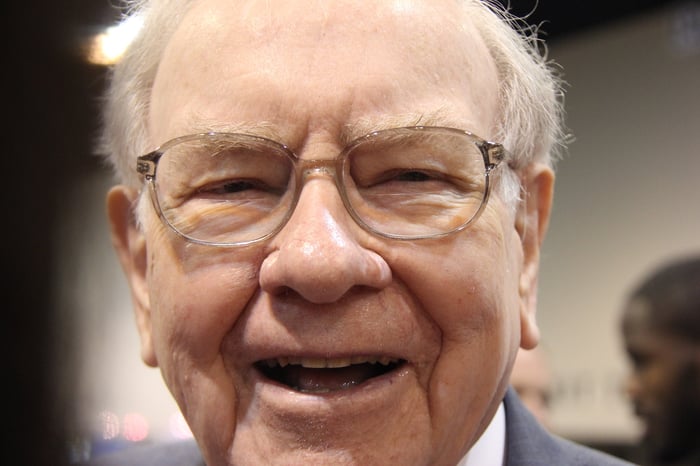Warren Buffett will step down as CEO of Berkshire Hathaway (BRK.A 0.39%) (BRK.B 0.30%) at the end of the year. But before he does, the conglomerate he's run for nearly 60 years will make at least one more big acquisition.
The Oracle of Omaha and soon-to-be CEO Greg Abel expect to close on a deal to acquire the petrochemicals business OxyChem from Occidental Petroleum (OXY 0.32%) in the fourth quarter. Berkshire will pay $9.7 billion in cash, which will barely make a dent in the $340 billion sitting on the company's balance sheet. Still, it represents the largest purchase for Berkshire since Allegheny Corp. in 2022.
The deal is an exceptional example of Warren Buffett's investing style, which relies on being in a good position to act when great opportunities present themselves. Here's what Berkshire Hathaway is getting in the deal, and why it's an absolutely genius move.

Image source: The Motley Fool.
What is Berkshire buying?
OxyChem is a leading petrochemical company, one of the largest producers of caustic soda, potash, chlor-alkali, and PVC. It's a global operation with 23 facilities worldwide, and Greg Abel described the acquisition as "a robust portfolio of operating assets, supported by an accomplished team."
However, the industry is facing pressure. Weak pricing for caustic soda and PVC led to disappointing pre-tax earnings in the second quarter of just $213 million. Management revised its outlook for the business for full-year pre-tax income low to between $800 million and $900 million for this year.
Occidental's management expects the supply side pressure on pricing to mitigate next year. In management's first quarter earnings call, it said it expects to generate "$1 billion in incremental pre-tax cash flow from non-oil and gas source in 2026, with further expansion in 2027." Part of that improvement is from modernization of OxyChem facilities.
In the meantime, though, Berkshire is swooping in to buy the assets when the entire industry is near a cyclical trough. The $9.7 billion price tag is estimated to be around 8 times OxyChem's 2025 EBITDA expectations. That's roughly in line with other chemical stocks like Eastman Chemical and Dow, but the entire industry is seeing lower earnings multiples due to the same headwinds pushing profits lower at OxyChem.
If the industry turns around as Occidental's management expects, Berkshire could be getting a heck of a bargain. But the way it's acquired the business makes it an even better deal for Berkshire and its shareholders.
The cherry on top for Berkshire
The big reason Occidental was willing to sell OxyChem despite expectations that it will see significantly improved earnings and cash flow over the next few years is because it needs cash. The oil and gas company took on additional debt to acquire CrownRock in August of 2024.
The increase in debt on Occidental's balance sheet was always meant to be temporary. When it announced the acquisition, management said it plans to divest assets and use excess cash flow to reduce its debt levels back below $15 billion. While it's been aggressive in using excess cash to pay down debt, the company still had $24 billion worth of debt on its balance sheet as of the end of the second quarter.
The cash infusion from Berkshire is set to net $8 billion after taxes. Of that, $6.5 billion will go toward paying down debt, with the other $1.5 billion going to Occidental's coffers. Combined with debt pay down from excess free cash flow, management expects to meet its sub-$15 billion target.
The debt reduction indirectly benefits Berkshire as well. The conglomerate owns a 28% stake in the business. The stronger balance sheet should support projects to maximize its vast resources in the Permian Basin while improving its free cash flow position with reduced debt burden. That should support long-term growth for the business.
One other aspect of the deal provides tremendous benefits to Berkshire and its investors. Instead of using Berkshire's preferred shares of Occidental to acquire OxyChem, Buffett and Abel managed to convince the company to take cash. That means Berkshire will continue to collect its 8% annual dividend on the $8.5 billion in preferred shares it continues to hold. That's a much better yield than the company's getting on its short-term Treasury bills.
Occidental says it plans to start redeeming those preferred shares in August of 2029, giving Berkshire shareholders at least three more years of extra-high yields. That's just the cherry on top for Berkshire shareholders, who finally saw Buffett put some of Berkshire's growing cash pile to work.





